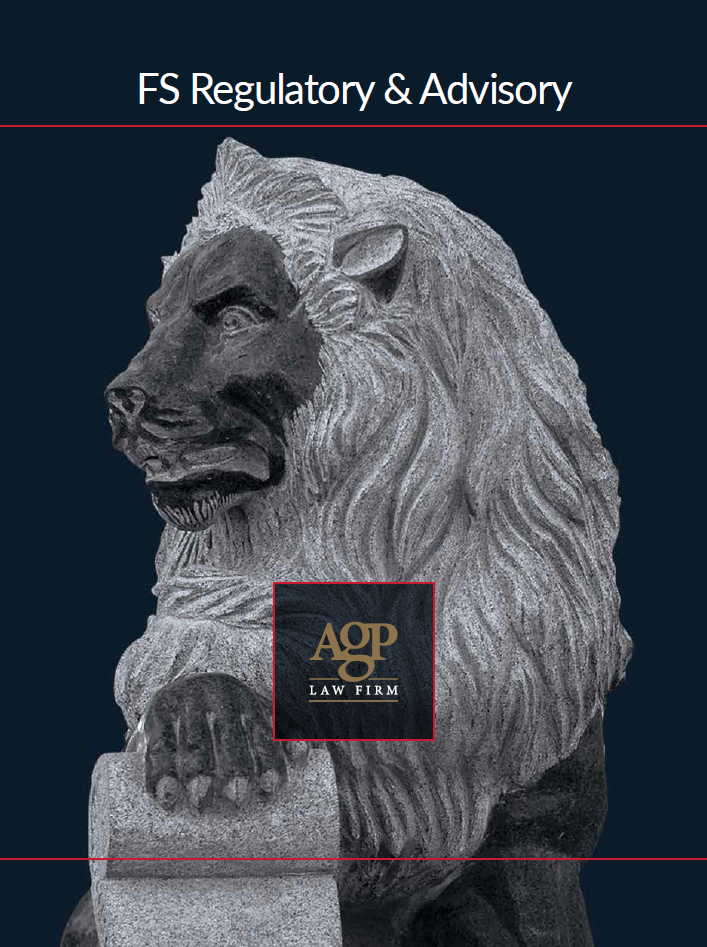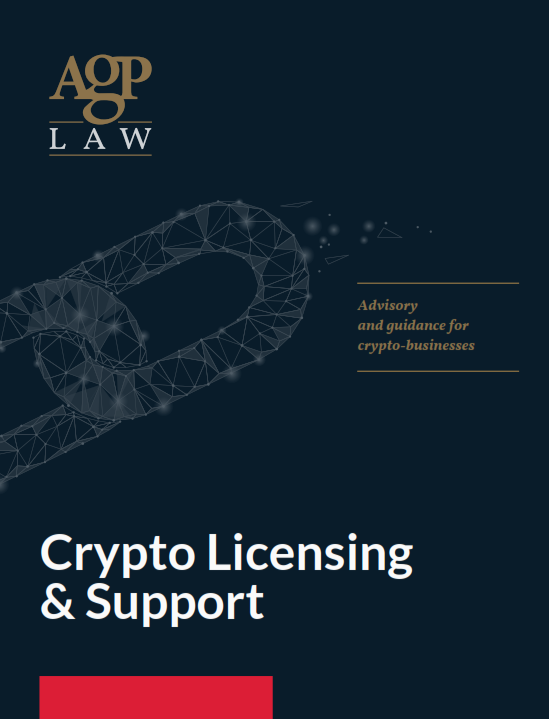
Investment Funds & Fund Managers
Cyprus is today one of the fastest growing investment fund centres in Europe through its' updated, focused and continued development on legislative and regulatory needs and its strong financial services sector which placed Cyprus as an investment and financial services 'hub' jurisdiction.
Through AGPLAW's highly qualified professionals and long-term experienced advisors to the local and international investment funds’ industry, we aim to provide tailored-made services at the highest standards.
We offer our clients with a ‘one-stop service’ package for both UCITS funds and Alternative Investment Funds (AIFs), as well as asset and wealth management entities – UCITS Management Companies and AIFMs.
Our comprehensive package includes the following:
- Providing our clients with the analysis of the provisions and the implications of the UCITS and the new AIFs Law.
- Advising on the most suitable forms of AIFs for the reorganization of existing ICIS and the establishment of new AIFs.
- Submission of the application to CySEC and the ongoing monitoring of the status of the application.
- Drafting the necessary legal documents for the incorporation and the establishment of both UCITS funds and AIFs.
- Ongoing provision of administrative services including the appointment of nominee officers, office facilities, administration of affairs, accounting, audit, tax services etc.
Main provisions of the Cyprus Alternative Investment Funds (AIFs) Law
Regulation & Supervision
The supervision and the regulation of investment funds in Cyprus are transferred from the Central Bank of Cyprus (CBC) to the Cyprus Securities and Exchange Commission.
Legal Forms of AIFs
AIFs can be structured in one of the following forms:
- Common Fund
- Fixed Capital Investment Company
- Variable Capital Investment Company
- Investment Limited Partnership
Classes of AIFs
The AIF Law provides for two classes of AIF:
- AIF for an unlimited number of investors, which can be marketed to retail or to well-informed and/or professional investors, as defined by the the EU Directive 2004/39/EC (on Markets in Financial Instruments).
- AIF for a restricted number of investors (up to 50), which can be marketed only to well-informed and/or professional investors, as defined by the the EU Directive 2004/39/EC (on Markets in Financial Instruments).
Minimum Capital Requirements
- Minimum share capital: € 125.000
- In the case of self-managed funds: €300.000
Management of AIFs
An AIF can be self-managed or appoint a management company.
Does the value of the AIF exceed EUR 100 million (including leverage) or EUR 500 million (without leverage with a lock-up period of 5 years)?
- If yes: The AIF (if self-managed) or the External Manager is subject to authorization and compliance with the AIFMD.
- If no: The AIF (if self-managed) or the External Manager is not subject to compliance with the AIFMD.
Umbrella Structures
The AIF Law allows umbrella funds, which are collective investment schemes that exist as single legal entities with multiple sub-funds (investment compartments), each one of which can have its own investment policy.
Listing of AIFs
Under the AIF Law, an AIF can be listed on any recognized stock exchange in the EU or a third country.
Transitional provisions framework for existing ICIS
Three options are available to the existing ICIS:
- Maintain their current operational structure by submitting the necessary documents, in order to comply where required, with the AIF Law and continue their operation as AIFs with limited number of investors. In this case, the investment funds continue to operate on the basis of the authorization received by the CBC without any further authorization by CySEC.
- Submit their application to CySEC for the authorization to operate as an AIF.
- Submit their application to CySEC for the authorization to operate as AIFM (Alternative Investment Fund Manager).
The application must be submitted within four months after the AIF Law came into force, this means by the 27th of November 2014. The ICIS submitting an application are allowed to continue their operations until the communication of the decision of CySEC to them.
In case of non-compliance with any of the above options, private ICIS must be dissolved and liquidated with six months following the expiration of the four months compliance deadline. Dissolution and liquidation will be carried out under the provisions of the repealed ICIS Law.
A new category of Alternative Investment Funds, the Registered AIFs (‘RAIFs’) has been introduced by the CySEC and recently affirmed by the Cyprus Parliament.
The introduction of RAIFs is considered one of the most important changes made in the fund industry thus far.
A RAIF will be a special type of an AIF that will not be subject to authorisation from CySEC, but it will be regulated through its manager who should always be a licensed AIFM.
Conditions for a RAIF
An AIF can operate as a RAIF, if all the following conditions are met:
- It is exclusively addressed to professional and well-informed investors
- It is externally managed
- Its regulatory documents clearly mention that it is under the specific part of the AIF Law
A RAIF will be registered in a central register, but it will not fall under the direct supervision of CySEC.
A RAIF can be set up as:
- A mutual fund
- An investment company
- A partnership
A RAIF can operate with multiple compartments provided that this is mentioned in its regulatory Documents.
Regarding the minimum capital and the evaluation of the RAIF, the provisions for AIFs are valid. For more information on AIFs please visit our post here.
Alternative Investment Fund Manager (AIFM)
A RAIF should always appoint an external manager that must be either:
- An AIFM of the Republic
- An AIFM of EU
- An AIFM outside EU provided that it has received the passport of Directive 2001/61/EU and has defined a reference country in EU
The AIFM should also appoint a custodian as per the provisions of AIFM Law.
UCITS Funds are collective investment portfolios that invest in transferable securities and / or other liquid financial instruments, which operate on the principle of risk – spreading.
UCITS are established and authorized under a harmonized EU legal framework. UCITS Mutual Funds are internationally considered as one of the most effective asset management tools available, due to their low investment risk and high level of investor protection.
A UCITS fund may be set up in one of the following legal forms:
- common fund (CF)
- variable capital investment company (VCIC).
The main benefits of UCITS Funds are:
- Professional wealth management
- Institutional security / High protection
- Access to international markets (money and capital markets)
- Wide range of options to cover all investor profiles
- Risk reduction through investment diversification
- Comparatively low costs
- Immediate liquidity
- Full transparency of information / Daily publication of M/F prices
- Possibility to set-up umbrella funds, allowing different sub-funds and share classes
Tax benefits:
- Exemption from tax on the amount invested to the UCITS, as well as on the capital gains from the disposal of units of the fund
- Exemption from tax on profits earned by the UCITS from sale of shares or other instruments, as well as from dividends received by companies in which the fund has invested.









